Cover
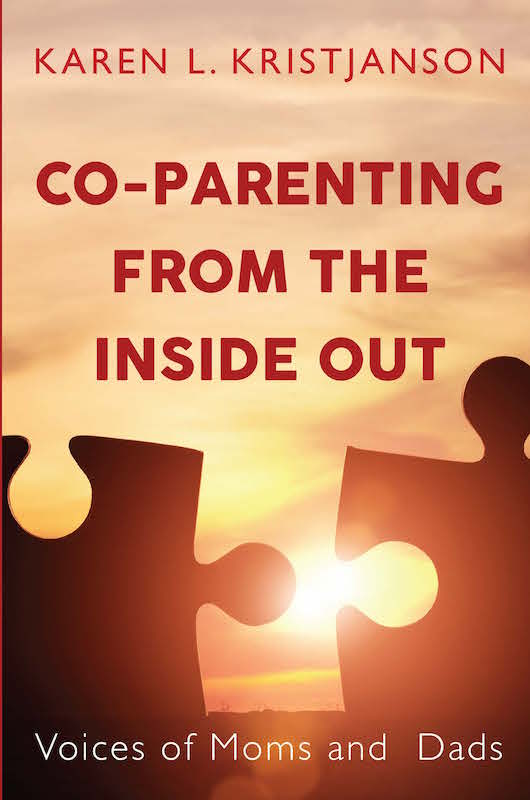
Copyright
Copyright Karen L. Kristjanson 2017
All rights reserved. No part of this publication may be reproduced, stored in a retrieval system, or transmitted in any form or by any means, electronic, mechanical, photocopying, recording, or otherwise (except for brief passages for purpose of review) without the prior permission of Dundurn Press. Permission to photocopy should be requested from Access Copyright.
Cover image: istock.com/Nastco
Library and Archives Canada Cataloguing in Publication
Kristjanson, Karen L., author
Co-parenting from the inside out : voices of moms and
dads / Karen L. Kristjanson.
Includes bibliographical references.
Issued in print and electronic formats.
ISBN 978-1-4597-4057-0 (softcover).--ISBN 978-1-4597-4058-7 (PDF).-
ISBN 978-1-4597-4059-4 (EPUB)
1. Parenting, Part-time. 2. Single parents. 3. Mothers--Interviews.
4. Fathers--Interviews. I. Title.
HQ759.915.K75 2017 649.1 C2017-905863-0
C2017-905864-9
We acknowledge the support of the Canada Council for the Arts, which last year invested $153 million to bring the artsto Canadians throughout the country, and the Ontario Arts Council for our publishing program. We also acknowledge the financial support of the Government of Canada through the Ontario Book Publishing Tax Credit and the Ontario Media Development Corporation, and the Government of Canada.
Nous remercions le Conseil des arts du Canada de son soutien. Lan dernier, le Conseil a investi 153 millions de dollarspour mettre de lart dans la vie des Canadiennes et des Canadiens de tout le pays.
Care has been taken to trace the ownership of copyright material used in this book. The author and the publisher welcome any information enabling them to rectify any references or credits in subsequent editions.
J. Kirk Howard, President
The publisher is not responsible for websites or their content unless they are owned by the publisher.

dundurn.com

@dundurnpress

dundurnpress

dundurnpress
Dedication
For my sons,
David and Steven,
who always give me hope
Contents
Foreword by Edward Kruk9
Introduction
1 My Story: One Foot in Front of the Other
2 Health, Self-Management, and Many Ways to Share
3 Decision-Making and Ongoing Conflicts
4 Extreme Co-Parenting: Intense Conflict and the Court
5 Co-Parenting with Addictions
6 Co-Parenting with Mental Health Conditions
7 Co-Parenting Children with Special Needs
8 Feelings from the Past: Regrets, Choices, and Guilt
9 Lesbian Couples: Co-Parenting with Two Mothers
10 Co-Operation, Survival, and Growth
11 The Silver Lining: Growing as Parents
12 Quick Pointers: What Helped?
13 Twelve Things Learned
Acknowledgements
Appendix 1 Interview Details
Appendix 2 Self-Assessment of Skills for Co-Parenting
Appendix 3 Resources
Foreword
I am honoured to write this foreword. Practical books of this calibre on the topic of shared parenting are scarce; the authors immersion into the now-vast literature on co-parenting and engagement with the material in a co-operative and collaborative manner has given birth to an extremely useful guide to addressing the challenges of parenting after divorce.
Children need both parents. Little else needs to be said. They also need responsible and responsive parenting, and parents who have good mental health and who remain child-focused. They need co-operative co-parenting, and to be shielded from parental conflict, which is tantamount to child abuse when children are exposed to it over a prolonged period.
This book will be invaluable when shared parenting becomes established as the norm in family laws internationally. A legal presumption of shared parenting, rebuttable in cases of family violence, is a corollary of the National Association of Women and the Laws recommendation of a legal presumption against shared parenting in situations of family violence. We now know from the research that shared parenting, absent family violence, is not only in the best interests of children, but is associated with significantly better physical and mental health outcomes for both mothers and fathers.
In the realm of parenting after divorce, each situation is unique. Yet the law is a blunt instrument when it comes to post-divorce living arrangements, and is dependent on idiosyncratic and biased judgments in an area in which judges have little or no expertise. Shared parenting provides an opportunity for parents to tailor living arrangements to the unique needs of their children. This book provides a solid foundation for co-parents from the beginning.
As with so many arenas of child and family policy and practice, there is no shortage of controversy in regard to post-divorce parenting. Ideas such as shared parenting are considered radical and marginalized by an establishment that gains from preserving the status quo.
The current norm, which involves the forced disengagement of divorced parents from childrens lives via primary residence court orders, has resulted in a precipitous decline in the amount of time parents are able to spend with their children in two-parent families. Yet we encourage and expect shared parenting in most two-parent families today, and this is the choice of more parents, as mothers are working outside the home to the same degree as fathers. Shared parenting in two-parent families is alive and well, as fathers and mothers share both the joys and burdens of parenthood, and the rewards and challenges of an outside work environment.
As stated above, children need their parents, and they need both of their parents. Every situation is unique, but whatever the circumstance, children have similar needs, according to their age and stage of development. When parents are sensitive, attuned, and responsive to their childrens needs, children feel secure and will adapt more easily to change.
As they are primarily responsible for their childrens needs, parents also need the support of community and social systems. It is the responsibility of social institutions to support parents in the fulfillment of their parental responsibilities, including co-parental responsibilities. It is unacceptable that for many families, representatives of social institutions, such as the legal, child welfare, and educational systems, undermine rather than support parents in the fulfillment of their parental responsibilities. (Nowhere is this more evident than in the realm of adversarial family law.)


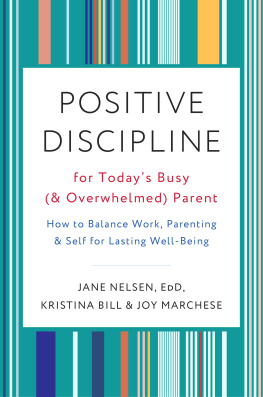
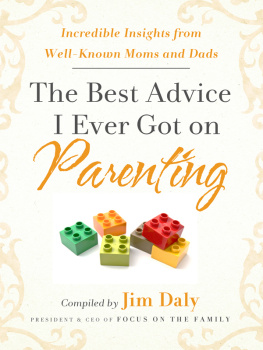

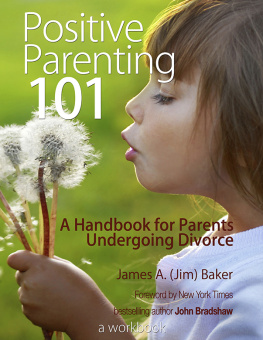
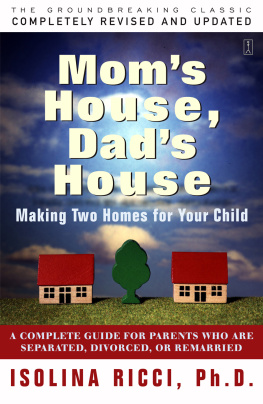

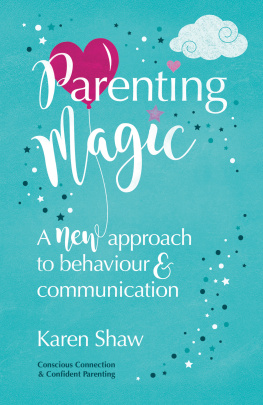
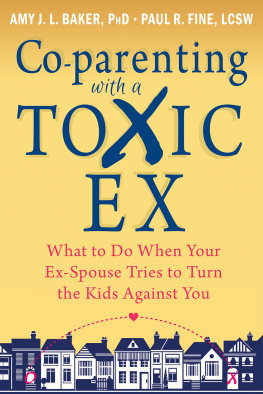



 dundurn.com
dundurn.com  @dundurnpress
@dundurnpress  dundurnpress
dundurnpress  dundurnpress
dundurnpress
